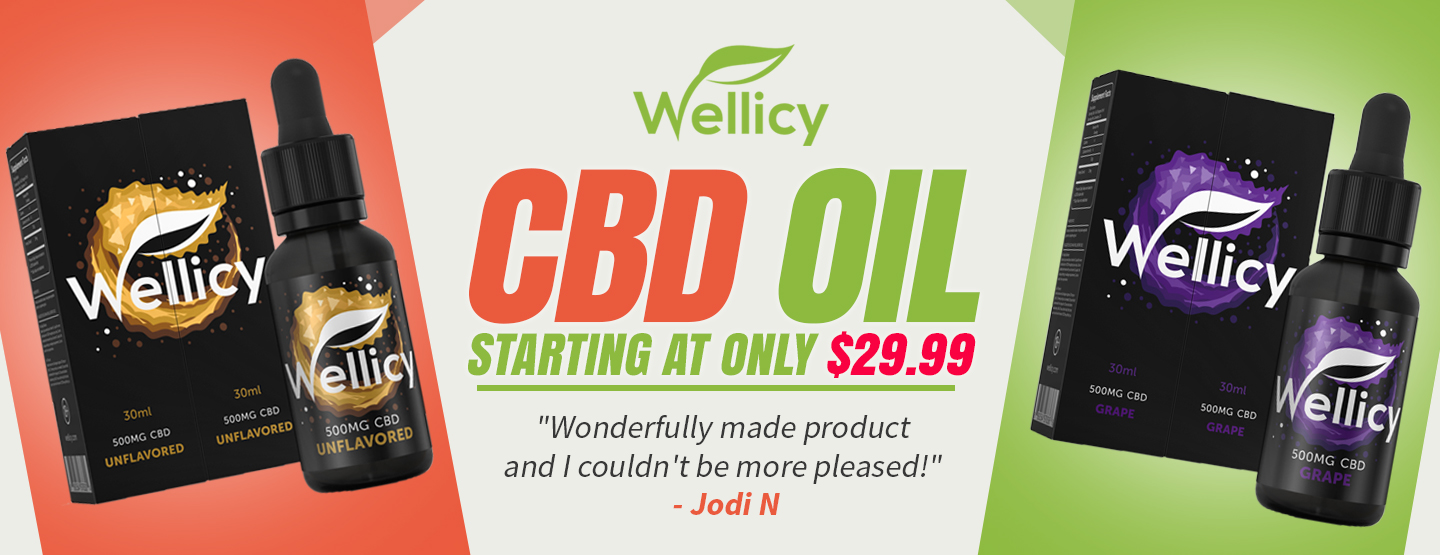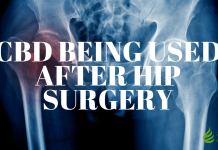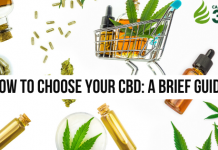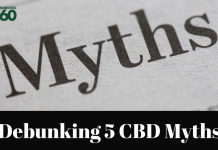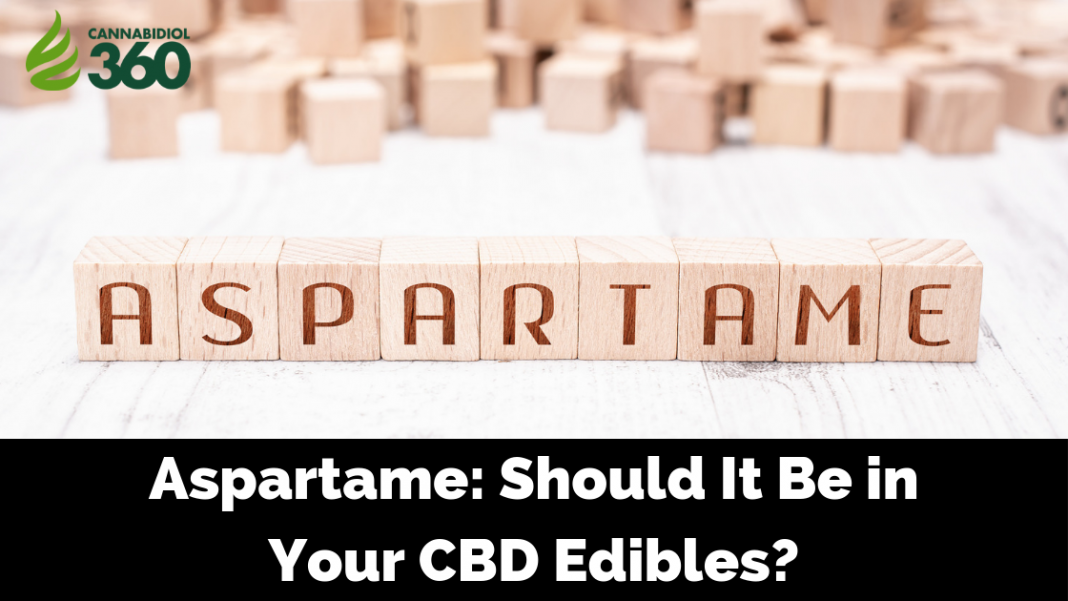
CBD edibles have benefited countless people around the world by giving them an extremely easy and enjoyable way to get their daily dose of beneficial hemp.
These days, the CBD market is so incredibly popular that it seems like every week, there’s a new handful of companies trying their hand at tasty treats containing the cannabinoid.
Now, of course, not all companies use the same recipes, which means that it’s important to read the ingredients list on an edible product if you’re trying to avoid a certain additive.
It’s not unusual to come across a CBD edible that contains aspartame, an artificial sweetener that’s found in many candies, gums and snacks.
Now, there’s been a lot of debate over the years about the effects of aspartame consumption, so we’re here to clear some things up.
What is Aspartame?
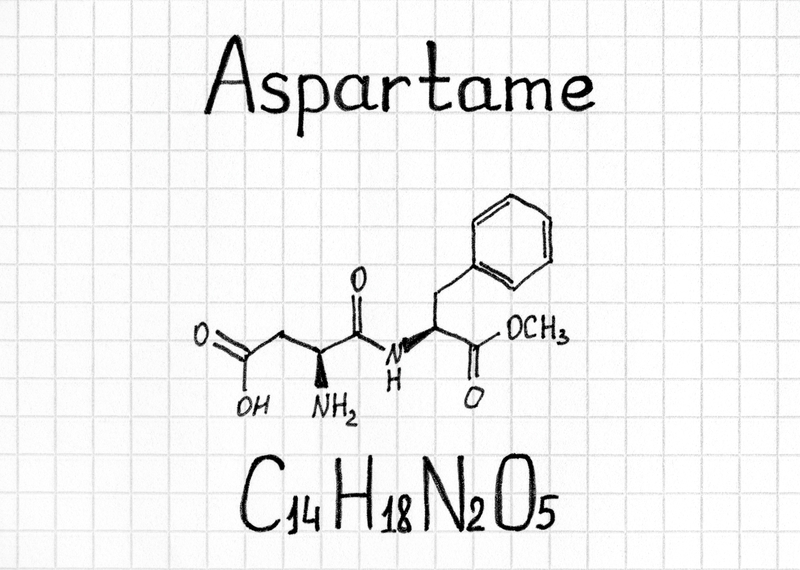
Aspartame is a sugar replacement that’s artificially made.
It’s classified as a methyl ester and was first used in 1965.
It was approved by the FDA in 1981. Throughout the 1990s, it soared in popularity due to the trendy low-sugar diets that started taking over the mainstream.
One thing that makes aspartame unique is that it’s about 200 times sweeter than conventional sugar.
It’s important to note that aspartame has not been shown to aid in weight loss or the management or prevention of diabetes, possibly because the body processes it in the exact same manner as it does sugar.
Is Aspartame Harmful to My Body?
As aspartame became increasingly popular (for different reasons), more medical experts began questioning its long-term effects on a person’s health.
Several people began reporting headaches after consuming large amounts of it, which prompted medical researchers to investigate it.
In fact, aspartame is the most widely investigated food additive that’s on the market today.
At some point in recent years, the media began publishing articles claiming that aspartame consumption can cause cancer.
However, these claims seem to have no source and have widely been considered false by medical experts and food experts alike.
While aspartame can cause headaches, so can cheese, wine and chocolate.
If you’re prone to headaches, you may find that aspartame acts as a trigger.
It’s also worth noting that Europe’s version of the FDA, the European Food Safety Authority, considers aspartame to be safe in normal doses.
And, obviously, the FDA considers it safe for consumption.
Now, there are some people who must avoid aspartame, and that includes people who suffer from a rare condition called phenylketonuria (PKU).
If you have this condition, then you cannot properly break down the amino acid that’s found in aspartame.
There have been several clinical studies performed over the years that demonstrate that aspartame is safe for consumption.
One study went so far as to criticize the “demonization” of the food additive.
The study went on to disprove links between aspartame consumption and cancer, hair loss, depression and other mood changes.
The FDA conducted their own study which analyzed the effects of several commonly used artificial sweeteners, claiming that aspartame does not cause harm to a person’s health when consumed.
Can You Be Allergic to Aspartame?
Anyone can be allergic to anything, so it’s no surprise that aspartame allergies exist.
Typically, signs of an aspartame allergy will include respiratory and gastrointestinal problems immediately or shortly after consumption.
If you experience any symptoms, contact a medical professional immediately or visit an emergency room.
There are also people who have a sensitivity to aspartame without being allergic.
Food sensitivities, unlike allergies, are typically non-life-threatening and don’t start showing symptoms until at least several hours after the allergen has been consumed.
Signs of a sensitivity to aspartame include headaches, dizziness, brain fog, heart palpitations and intestinal upset.
Obviously, anyone who is sensitive to aspartame should avoid consuming it altogether.
Should Anyone Else Avoid Aspartame Consumption?

Those who suffer from tardive dyskinesia should avoid aspartame.
This rare neurological condition causes involuntary twitches of the face and the body.
It’s believed that aspartame consumption can make your condition worsen.
What Other Products Contain Aspartame?
The most popular product that contains aspartame is diet soda.
The most popular soft drink companies use this sugar alternative in order to make their drinks low in calories.
Also, sugar-free gums and candies typically contain aspartame, as do many popular chewable supplements such as multi-vitamins.
Also, many sugar-free baked goods contain this additive.
Should Aspartame Be in CBD Edibles?
Because aspartame is considered safe by the FDA, there’s no reason why it shouldn’t be used by companies that produce CBD edibles.
After all, lots of food companies around the world rely on the sugar replacement to give their products a sweet taste.
Aspartame, therefore, adds to the flavor of CBD edibles such as candies and cookies.
Why Not Just Use Sugar in CBD Edibles?
There are a few reasons why people prefer aspartame over sugar.
- One reason is that per teaspoon, aspartame contains fewer calories than conventional table sugar.
- Additionally, as we stated earlier, aspartame is much sweeter than sugar per ounce, which means that companies can use far less of it to achieve the proper level of sweetness.
How to Avoid CBD Edibles Containing Aspartame
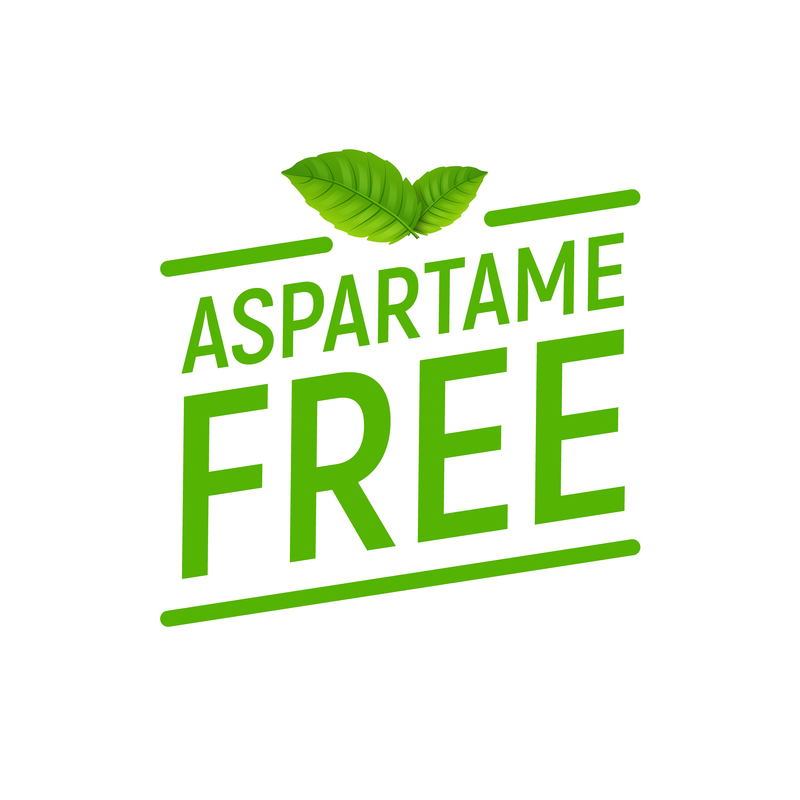
Now, of course, if you are sensitive or allergic to aspartame, you’ll want to find a CBD edible product that’s free of the substance.
That’s why we’ve created this guide.
By following these tips, you won’t have to worry about accidentally consuming the sweetener while trying to enjoy your daily dose of CBD.
Tip #1: Read the Ingredients
Obviously, reading the ingredients on your package of edibles is essential.
Remember that aspartame goes by a few different names, including 1-methyl ester and N-(L-α-Aspartyl)-L-phenylalanine.
Tip #2: Call the Company
If you’re still unsure about whether an edible product contains aspartame or not, you can always call the manufacturer.
Their customer service team should be happy to answer your questions regarding the ingredients that are in the edible product.
Tip #3: Avoid CBD Edibles All Together
If you have a severe aspartame allergy and don’t feel comfortable taking the risk of consuming it.
You can always go with a CBD product that isn’t an edible.
There are many equally effective CBD products on the market today such as tinctures, capsules and vape oils.
Final Thoughts
In short, aspartame is not the devil that some food analysts swear it to be.
However, there are people whose bodies can’t tolerate it.
Which means that if you’re sensitive or allergic to aspartame, it’s essential that you avoid CBD edibles that contain the additive.
Luckily, the edible market is diverse which means that you should have no trouble finding a tasty CBD treat that’s free of this popular sugar replacement such as the Wellicy CBD Super Chews.
As always, consult with your doctor and get retested for certain allergies to make sure your body can handle it.
The reason is due to the fact our bodies can change over time, and because of that, certain tolerance for foods and their ingredients either stay the same or no longer can be accepted.

